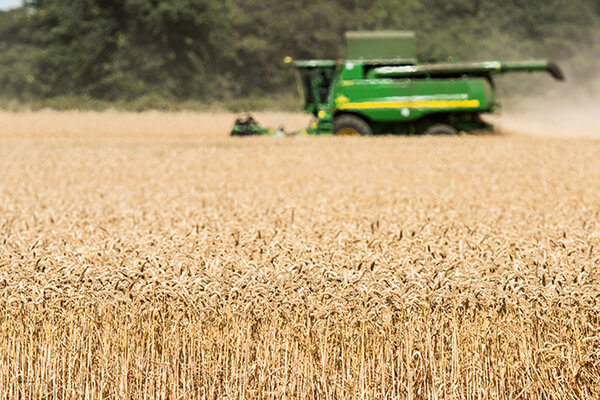- August 20, 2018
- By Samantha Watters
The University of Maryland has helped accomplish a feat once thought impossible—sequencing the genome of wheat, the world’s most widely planted food crop.
Wheat accounts for about a fifth of all calories eaten by people worldwide, but has a genome far larger and more complex than that of humans.
The long-awaited mapping of the grain’s vast genetic territory could lead to new and better strains of wheat by improving complex traits such as crop yield, grain quality, resistance to diseases or pests, and tolerance to heat and drought, says a College of Agriculture and Natural Resources expert leading the university’s participation in the International Wheat Genome Sequencing Consortium (IWGSC). And it could give control over characteristics like protein content or types and amounts of allergy-causing compounds.
“The wheat genome gives us a complete picture that will be the key to unlocking genes controlling important traits for crop improvement,” said consortium researcher Vijay Tiwari, an assistant professor of plant science and landscape architecture. “When this discovery was made for rice and maize, rapid advances were made in those crops almost immediately after,” he said.
The research was authored by Tiwari and more than 200 other scientists from 73 research institutions in 20 countries. UMD is one of only seven U.S. institutions involved as consortium partners. A paper about their work was published on Aug. 17 in the journal Science.
According to the IWGSC, which began in 2005 as an initiative by Kansas farmers, meeting the demands of a projected world population of 9.6 billion by 2050 requires a greater than 50 percent increase in wheat production, primarily on land already under cultivation.
Although it took years of labor, decoding wheat’s massive genome would have taken far longer without the consortium’s pooled efforts. According to Tiwari, “This was very much collaborative science at its best.”
IWGSC and England’s John Innes Centre contributed to this report.
Topics
Research